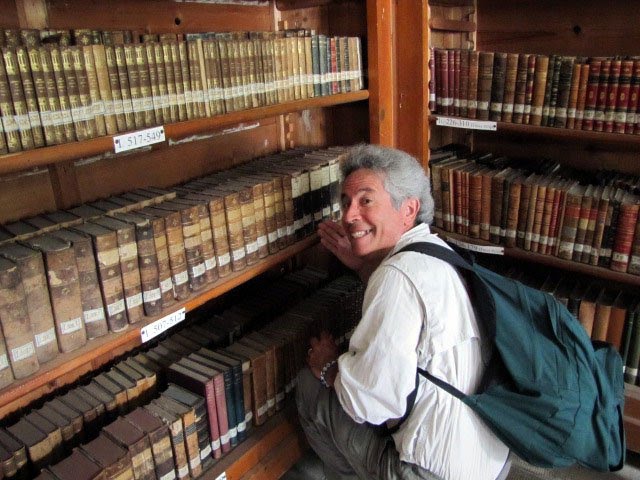Classics

Antiquity in Arkansas!
Classical Studies students take a wide variety of courses; this field is one of the original ‘interdisciplinary’ programs, and includes courses in ancient Greek and Latin language (four years of each, and more, if needed), mythology, comedy, tragedy, religion, history, art, architecture, philosophy, and 3-D computer visualization and modeling of ancient buildings. Our faculty offer frequent study tours in Greece and Italy. We also have an active chapter of Eta Sigma Phi, the national Classical Studies honorary society.
Why Study Classics?
We often ask University of Arkansas students about the value of Classical Studies in their lives. These are some of their answers:
- Studying Classics helps me to understand literary allusions; it increases my English vocabulary, grammar and usage
- It improves my study habits.
- The Classics allow me to be able to read an entire work of literature in the original, without relying on a translation.
- Classics allow us to understand the foundation and meaning of history, and gain an appreciation of language and culture in a unique way.
- Classics are great because they always come back.
- Classical languages sharpen our analytical skills.
- Studying Classics is part of a well-rounded education.
- Classical Language understanding is good if you want to go to graduate school; it helps in future studies.
- If you want to know about history, philosophy, literature, and archaeology, you need to be familiar with classical texts. Furthermore, studying ancient languages is fun -- it is like a puzzle
See what our CLST alumni have to say about how the Classical Studies major has been important to their lives.
Major in Classical Studies (30-36 hours)
Classical Studies Foundation (12-18 hours)
- 6 hours of 1000/2000 level CLST courses
- Greek or Latin to 2003 (3-9 hours)
- 3 hours of the Classical Studies Coloquium (CLST 4003H)
- Can also be taken for 6 additional hours as an elective
In addition to the Foundation Requirements, students will choose one or the two following CLST Major Concentrations:
- 6 additional hours of Greek or Latin
- 12 hours of the 3000/4000 level electives in LATN/GREK/CLST or related courses in other departments (no more than 6 hours non-CLST)
- 18 hours of CLST or related courses in other departments (no more than 6 hours non-CLST) - at least 18 hours must be at the 3000 level or higher
Minor in Classical Studies (18 hours)
- 6 credit hours in Classical Studies courses (CLST, GREK or LATN) numbered at the 1000- or 2000-level
- 12 credit hours numbered at the 3000-level or higher in Classical Studies courses
(CLST, GREK or LATN) or related courses from other areas
- No more than 6 credit hours can be outside CLST, GREK or LATN courses
A complete list of courses can be found on the U of A course catalog.
Interested in Classics?

For more details, contact Daniel Levine, Professor of Classical Studies.
For more information, look at Minor Requirements, Major Requirements, Course Listings, and Study Abroad.
